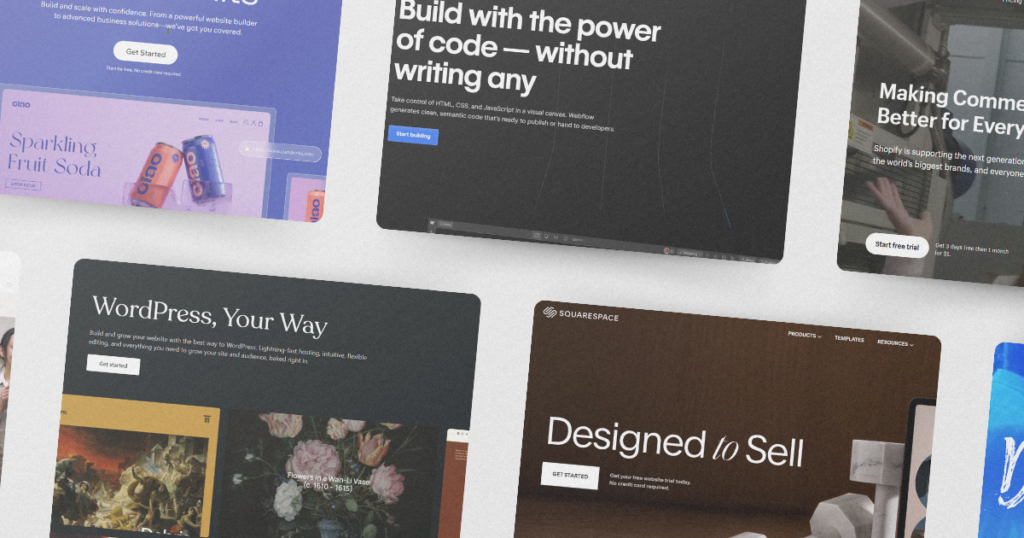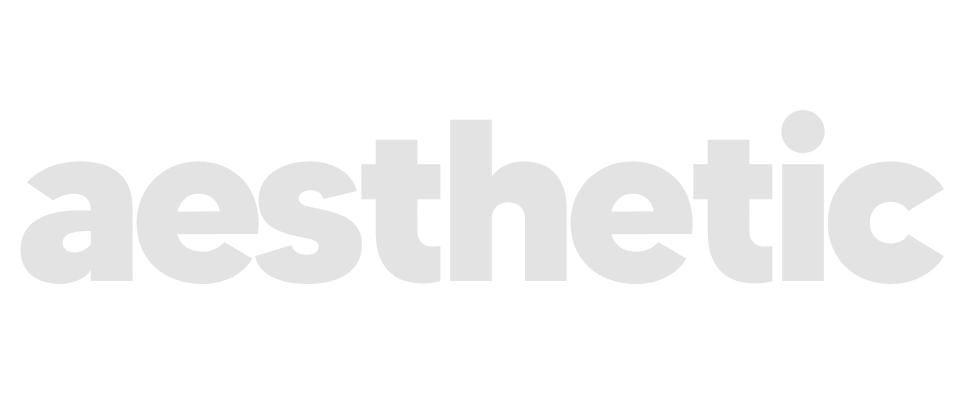Creating a website can be daunting, especially if you lack technical skills. You might feel overwhelmed by the sheer number of options available. How do you know which website creator is the best for your needs? You want something easy to use, offers professional-looking templates, and doesn’t break the bank.
We understand the frustration as we’ve also spent extensive time researching and testing various website builders that work and don’t. In this article, you will learn about the seven best website creators, each offering unique features to help you create a stunning online presence without the need for coding skills.
Ready to find the perfect website creator for you? Let’s dive in.

Criteria for Selection
When it comes to choosing the best website creator, several factors need to be considered. Here’s what we focused on to compile this list:
Ease of Use: The platform should be user-friendly, allowing even beginners to create and manage their websites with minimal effort.
Templates and Design Options: A wide range of high-quality templates and customisation options is essential to create a unique and professional-looking site.
Features and Functionality: From e-commerce capabilities to blogging tools, the website creator should offer features that cater to different needs.
Pricing: Affordability is crucial. We looked at various pricing plans to ensure there are options for different budgets.
Customer Support: Reliable customer support is vital to help users navigate any issues they may encounter.
SEO and Marketing Tools: Effective SEO and marketing tools are necessary for enhancing online visibility and attracting traffic.
Performance and Reliability: The platform should provide fast load times and minimal downtime to ensure a smooth user experience.
1. Wix
Wix is a popular website creator known for its user-friendly interface and extensive design flexibility. It’s perfect for beginners and those who want a visually appealing website without diving into code.
Key Features:
Drag-and-Drop Editor: Wix’s intuitive drag-and-drop editor allows you to design your website exactly how you want it. No coding skills required.
Templates: With over 800 designer-made templates, Wix offers a template for almost any industry or purpose. You can customise these templates extensively to match your brand’s identity.
App Market: Wix’s App Market features a vast selection of add-ons and integrations, from social media tools to e-commerce functionalities.
SEO Tools: Built-in SEO tools help you optimise your site for search engines, enhancing your online visibility.
Artificial Design Intelligence (ADI): Wix ADI can create a personalised website for you in minutes based on your answers to a few questions.
Pricing:
Wix offers a range of pricing plans to suit different needs:
Free Plan: Limited features and Wix branding on your site.
Combo Plan: AUD 21 per month, suitable for personal use with a custom domain.
Unlimited Plan: AUD 28 per month, ideal for freelancers and entrepreneurs.
Business and eCommerce Plans: Starting at AUD 35 per month, these plans offer advanced e-commerce capabilities.
Pros:
- Extremely user-friendly with a powerful drag-and-drop editor.
- Extensive range of templates and design options.
- Comprehensive App Market for added functionality.
Cons:
- The free plan includes Wix branding, which can be unprofessional for business use.
- Limited flexibility in switching templates once your site is live.
2. Squarespace
Squarespace is renowned for its sleek design and professional templates, making it a favourite among creatives and businesses looking for a polished online presence.
Key Features:
Award-Winning Templates: Squarespace offers beautifully crafted templates designed for various industries. These templates are mobile-responsive and highly customisable.
All-in-One Platform: Squarespace provides an integrated solution with features for blogging, e-commerce, portfolios, and more, all in one place.
Drag-and-Drop Builder: The platform’s drag-and-drop builder allows for easy website creation and management, requiring no coding skills.
E-commerce Capabilities: Squarespace includes robust e-commerce features, such as inventory management, product catalogues, and secure checkout.
Marketing Tools: Built-in marketing tools like email campaigns, SEO features, and social media integrations help you grow your online presence.
Pricing:
Squarespace offers a range of pricing plans in AUD:
Personal Plan: AUD 23 per month, ideal for personal use or simple websites.
Business Plan: AUD 34 per month, which includes advanced marketing tools and fully integrated e-commerce.
Basic Commerce Plan: AUD 41 per month, designed for small businesses with e-commerce needs.
Advanced Commerce Plan: AUD 61 per month, offering comprehensive e-commerce features, including abandoned cart recovery and advanced shipping.
Pros:
- Elegant, professionally designed templates.
- All-in-one platform with powerful integrated features.
- Excellent e-commerce capabilities.
Cons:
- Slightly steeper learning curve compared to other website builders.
- Higher pricing plans may be expensive for smaller budgets.
3. Weebly
Weebly is a straightforward website creator that’s great for beginners and small businesses. It offers an intuitive interface and powerful features at affordable prices.
Key Features:
Drag-and-Drop Editor: Weebly’s simple drag-and-drop editor makes it easy to build and customise your site without any coding knowledge.
Templates: Weebly provides a variety of responsive templates that look great on both desktop and mobile devices.
E-commerce Functionality: Weebly’s ecommerce tools allow you to set up an online store, manage inventory, and process payments seamlessly.
Integrated Apps: The Weebly App Center offers a wide range of applications and integrations to extend the functionality of your site.
SEO and Marketing Tools: Weebly includes basic SEO tools and marketing features to help you promote your site and attract visitors.
Pricing:
Weebly offers competitive pricing plans in AUD:
Free Plan: Limited features and Weebly branding.
Personal Plan: AUD 9 per month, suitable for personal sites with custom domains.
Professional Plan: AUD 18 per month, ideal for small businesses with enhanced features.
Performance Plan: AUD 37 per month, offering advanced e-commerce capabilities.
Pros:
- Very user-friendly and suitable for beginners.
- Affordable pricing plans.
- Good e-commerce features for small businesses.
Cons:
- Limited design flexibility compared to other website creators.
- Fewer advanced features and customisation options.
4. WordPress.com
WordPress.com is a versatile website creator that caters to a wide range of users, from bloggers to small businesses. It offers robust features, extensive customisation options, and a large community for support.
Key Features:
Templates: WordPress.com provides a vast library of themes suitable for various purposes, all of which are customisable to fit your brand.
Content Management: As a powerful content management system (CMS), WordPress.com is ideal for blogs and content-heavy sites.
Plugins: The platform supports numerous plugins that extend functionality, from SEO tools to e-commerce capabilities.
E-commerce Options: With the right plan and plugins, you can set up a fully functional online store.
Community Support: A large community of users and developers means plenty of support and resources are available.
Pricing:
WordPress.com offers a range of pricing plans in AUD:
Free Plan: Basic features with WordPress branding.
Personal Plan: AUD 7 per month, which includes a custom domain and email support.
Premium Plan: AUD 14 per month, offering advanced design tools and monetisation options.
Business Plan: AUD 33 per month, which includes advanced plugins, e-commerce capabilities, and 24/7 support.
eCommerce Plan: AUD 58 per month, designed specifically for online stores with additional e-commerce features.
Pros:
- Extremely flexible and customisable.
- Strong content management capabilities.
- Wide range of themes and plugins available.
Cons:
- Can be overwhelming for beginners due to its extensive features.
- Some advanced features require higher-priced plans or third-party plugins.
5. Shopify
Shopify is a leading e-commerce website creator designed specifically for online stores and retail point-of-sale systems. It’s known for its robust features and ease of use, making it a top choice for businesses looking to sell products online.
Key Features:
Storefront Themes: Shopify offers a wide selection of professionally designed storefront themes that are mobile-responsive and customisable.
E-commerce Tools: Comprehensive e-commerce features include inventory management, product variants, secure checkout, and shipping integrations.
Payment Processing: Shopify Payments allows you to accept credit card payments directly, and it integrates with various payment gateways.
App Store: The Shopify App Store provides numerous apps to extend functionality, from marketing tools to advanced reporting.
POS System: Shopify’s Point-of-Sale system integrates your online and physical store sales, making it ideal for businesses with both online and offline operations.
Pricing:
Shopify offers several pricing plans in AUD:
Basic Shopify Plan: AUD 51 per month, which includes everything you need to set up and run a small online store.
Shopify Plan: AUD 135 per month, offering additional features like professional reports and better shipping rates.
Advanced Shopify Plan: AUD 344 per month, which includes advanced reporting and lower transaction fees.
Shopify Plus: Custom pricing for enterprise-level solutions.
Pros:
- Comprehensive e-commerce features tailored for online selling.
- User-friendly interface with extensive customisation options.
- Strong support and a large community of users.
Cons:
- Higher pricing compared to other website builders, especially for advanced plans.
- Transaction fees apply if you don’t use Shopify Payments.
6. Webflow
Webflow is a powerful website creator designed for designers and developers who want more control over their site’s design and functionality. It offers advanced design tools and the ability to build custom websites without writing code.
Key Features:
Design Flexibility: Webflow’s design interface allows for pixel-perfect customisation, providing a high degree of control over every element of your site.
CMS: Webflow’s content management system is highly flexible, allowing you to create custom content structures and manage dynamic content.
Interactions and Animations: Create advanced interactions and animations without writing any code, giving your website a professional and dynamic look.
E-commerce: Webflow’s ecommerce features let you create a fully customised online store with unique product pages, shopping cart experiences, and checkout processes.
Hosting: Webflow provides fast and reliable hosting with a global content delivery network (CDN).
Pricing:
Webflow offers several pricing plans in AUD:
Basic Plan: AUD 20 per month, suitable for simple sites without CMS functionality.
CMS Plan: AUD 31 per month, ideal for content-driven sites with CMS features.
Business Plan: AUD 64 per month, offering higher traffic limits and advanced features.
E-commerce Plans: Starting at AUD 46 per month for Standard, AUD 92 per month for Plus, and AUD 235 per month for Advanced, tailored to different e-commerce needs.
Pros:
- High design flexibility and customisation options.
- Advanced interactions and animation capabilities.
- Powerful CMS for dynamic content management.
Cons:
- Steeper learning curve compared to other website builders.
- Higher pricing, especially for e-commerce plans.
7. Zyro
Zyro is a relatively new website creator that has quickly gained popularity due to its affordability and ease of use. It’s ideal for small businesses, personal projects, and individuals looking for a simple way to build a professional website.
Key Features:
Drag-and-Drop Editor: Zyro offers an intuitive drag-and-drop editor, making it easy to create and customise your website without any coding skills.
Templates: Zyro provides a range of modern, responsive templates that are easy to personalise.
AI Tools: Zyro includes several AI-powered tools, such as an AI writer for generating content and an AI heatmap to optimise your design.
E-commerce: Zyro’s e-commerce features allow you to set up an online store, manage inventory, and process payments with ease.
SEO and Marketing: Built-in SEO tools and marketing integrations help you improve your site’s visibility and attract more visitors.
Pricing:
Zyro offers some of the most affordable pricing plans in AUD:
Basic Plan: AUD 2.90 per month, suitable for personal sites or small projects.
Unleashed Plan: AUD 4.90 per month, offering more features and bandwidth.
eCommerce Plan: AUD 11.90 per month, designed for small online stores.
eCommerce Plus Plan: AUD 14.90 per month, with advanced e-commerce features.
Pros:
- Extremely affordable pricing plans.
- User-friendly interface with AI-powered tools.
- Solid e-commerce features for small businesses.
Cons:
- Limited design flexibility compared to more advanced website builders.
- Smaller template library than some competitors.
What’s Next?
Choosing the right website creator is crucial for establishing a professional and functional online presence. Here’s a quick recap of the top seven website creators for 2024:
- Wix: Ideal for beginners with its user-friendly drag-and-drop editor and extensive range of templates.
- Squarespace: Perfect for creatives and businesses that prioritise design and aesthetics, offering sleek and professional templates.
- Weebly: A straightforward, affordable option for small businesses and individuals needing a simple, functional website.
- WordPress.com: Highly flexible and customisable, suitable for bloggers, small businesses, and e-commerce sites with extensive content management needs.
- Shopify: The go-to platform for e-commerce, providing robust features and an intuitive interface for online stores.
- Webflow: Ideal for designers and developers who want complete control over their website’s design and functionality without writing code.
- Zyro: An affordable and easy-to-use website builder with AI tools, perfect for small businesses and personal projects.
Each of these website creators offers unique features and benefits, catering to different needs and budgets. When choosing a platform, consider what’s most important for your website—whether it’s ease of use, design flexibility, e-commerce capabilities, or affordability.
By understanding your specific needs and using the information provided, you can confidently select the best website creator for your project in 2024. For further insights on your web development projects, check out these additional blogs: Squarespace vs. WordPress: Which is Better for SEO? and Cost Breakdown of Building a Website. Happy website building!




